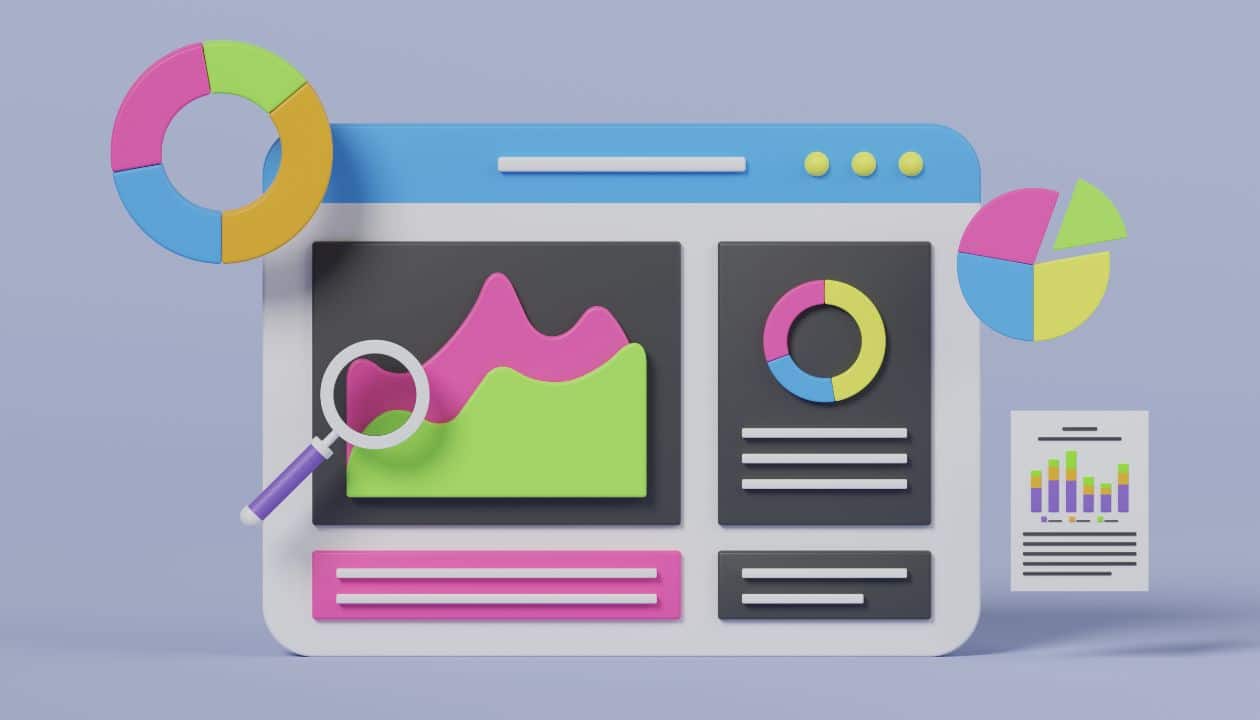Data analysis is the process of examining & interpreting data to extract valuable insights and information. With the increasing amount of data generated by various industries, the demand for skilled professionals to analyse this data has also grown.
Data analysis has become essential for decision-making processes in most healthcare, finance, marketing, and technology industries in the current digital era.
Data analysts collect, organise, and analyse data to help organisations make informed decisions. Data analysts use statistical techniques and visualisation tools to identify data patterns, trends, and correlations. Their insights help organisations optimise operations, identify risks, and improve products or services.
This article will discuss the essential skills required to become a data analyst. So, whether you are looking for data analyst skills to mention in the resume or want to improve your skills to succeed in your career, this article will provide complete information.

Key Skills Required for a Data Analyst
A. Analytical Skills
A data analyst must analyse vast amounts of information to find insightful information. Here are some key analytical skills that will help you excel in your role:
- Time Management: You need to manage your time effectively to complete projects within deadlines. This includes setting priorities and juggling multiple tasks.
- Attention to Detail: You must pay attention to details to ensure your findings are accurate and complete. This means identifying and correcting errors in the data you work with.
- Critical Thinking: You must think critically and logically to make informed decisions. You must also be able to identify potential biases and errors in the data.
- Problem-Solving: You need to be able to identify problems and develop creative solutions. You must use critical thinking skills to develop and test hypotheses using data.
- Statistical Analysis: You must be proficient in statistical methods to analyze data and identify trends and relationships.
- Predictive Analytics: You must be able to use predictive analytics techniques to forecast future trends based on historical data.
- Data Modeling: You must be able to create and maintain data models that support complex business questions. This includes designing data models, selecting appropriate data storage technologies, and optimizing data queries for performance.
B. Technical Skills for Data Analysts
To succeed as a data analyst, you need to have a diverse set of technical skills. Here are some key technical skills that you should be familiar with:

1. Programming Languages:
- Python: You can use it for data analysis, machine learning, and artificial intelligence.
- R: You can use it for statistical analysis, data visualization, and machine learning.
- SQL: You can use it for querying and manipulating structured data in relational databases.
- Java: You can use it for developing large-scale applications and data-intensive systems.
- JavaScript: You can use it for creating interactive web applications and visualizations.
- Scala: You can use it for developing scalable and distributed applications.
- C/C++: You can use it for developing high-performance computing applications.
2. Data Visualization Tools:
- Tableau: You can use it to create interactive dashboards and reports.
- Power BI: You can use it for data visualization and business intelligence.
- QlikView: You can use it for creating interactive data visualizations and reports.
- D3.js: You can use it to create interactive and dynamic data visualizations.
- Matplotlib: You can use it for creating static and interactive visualizations in Python.
- Seaborn: You can use it for creating statistical graphics and visualizations in Python.
3. Data Management and Manipulation Techniques:
- Data Cleaning and Preprocessing: You can use it to clean and prepare raw data for analysis.
- Data Transformation and Aggregation: You can use it to transform and summarize data.
- Data Integration and Fusion: You can combine data from multiple sources.
- Data Wrangling and Munging: You can use it to clean and prepare messy data.
- Data Profiling and Quality Assessment: You can use it to identify data quality issues and inconsistencies.
4. Data Warehousing and Data Modeling:
- Relational and Dimensional Data Modeling: You can use it to design data models that support complex business questions.
- Star Schema and Snowflake Schema: You can use schema to model dimensional data.
- Data Mart and Data Warehouse Design: You can use it to design data storage solutions for analytical purposes.
- Data Integration and ETL Processes: You can use it to integrate and transform data from multiple sources.
- Data Governance and Master Data Management: You can use it to ensure data consistency and accuracy across the organization.
5. Database Technologies:
- MySQL: It's an open-source relational database management system.
- Oracle: It's an enterprise-grade relational database management system.
- SQL Server: It's a relational database management system developed by Microsoft.
- PostgreSQL: It's an open-source object-relational database management system.
- MongoDB: It's a document-oriented NoSQL database.
- Cassandra: A distributed NoSQL database designed for scalability and high availability.
- HBase: It's a distributed column-oriented NoSQL database.
- Redis: It's an in-memory data structure store used as a database, cache, and message broker.
6. Machine Learning Algorithms and Techniques:
- Regression Analysis: You can use it to predict continuous variables.
- Classification and Clustering: You can use it to categorize data and identify patterns.
- Decision Trees and Random Forests: You can use it to predict outcomes and identify important variables.
- Support Vector Machines: You can use it for classification and regression analysis.
- Neural Networks and Deep Learning: You can use it for advanced pattern recognition and analysis.
- Reinforcement Learning: You can use it to train autonomous agents to make decisions.
- Natural Language Processing: You can use it to analyze and process human language.
7. Big Data Technologies:
- Apache Spark: It's a distributed computing system for processing large datasets.
- Apache Hive: It's a data warehouse infrastructure built on top of Hadoop.
- Apache Pig: It's a data flow language and execution environment built on Hadoop.
- Apache Kafka: It's a distributed streaming platform for building real-time data pipelines.
- NoSQL Databases: They are non-relational databases for handling unstructured and semi-structured data.
- Distributed File Systems: They store and manage large datasets across multiple servers.
8. Cloud Computing Platforms:
- Amazon Web Services (AWS): It's a cloud computing platform offering a wide range of data storage, processing, and analysis services.
- Microsoft Azure: It's a cloud computing platform offering various data management and analytics services.
- Google Cloud Platform (GCP): It's a cloud computing platform offering data storage, processing, and analysis services.
- IBM Cloud: It's a cloud computing platform offering various data management and analytics services.
- Oracle Cloud: It's a cloud computing platform offering data storage, processing, and analysis services.
- Salesforce Platform: It's a cloud computing platform that offers services for data management and analytics in the context of customer relationship management.
9. Statistical Software Packages:
- SAS: It's a statistical software package used for data analysis and reporting.
- SPSS: It's a statistical software package used for data analysis and reporting.
- Stata: It's a statistical software package used for data analysis and reporting.
- MATLAB: It's a numerical computing environment used for data analysis and modelling.
10. Communication Skills for Data Analysts
In addition to technical skills, communication skills are also essential for a data analyst's success. Here are some communication skills that are important for a data analyst:
- Strong written and verbal communication skills: A data analyst should be able to clearly and effectively communicate their findings and recommendations through various mediums such as reports, presentations, and emails.
- Ability to effectively communicate complex data findings to non-technical stakeholders: A data analyst should be able to explain complex data findings to stakeholders who may not have a technical background using data visualization and storytelling techniques.
- Capacity for collaborating with cross-functional teams: A data analyst should be able to work with teams from different departments and backgrounds to achieve common goals. This requires strong collaboration and teamwork skills.
Conclusion:
Data analysis is a rapidly growing field that offers many opportunities for professionals with the right skills. By acquiring the essential skills outlined in this article, you can position yourself for success as a data analyst and open up new career possibilities.
Whether you're just starting your career or looking to advance it, the key to success in data analysis lies in continuously improving and refining your skills. With the right mindset and dedication, you can achieve your professional goals and make a meaningful impact in your field.








